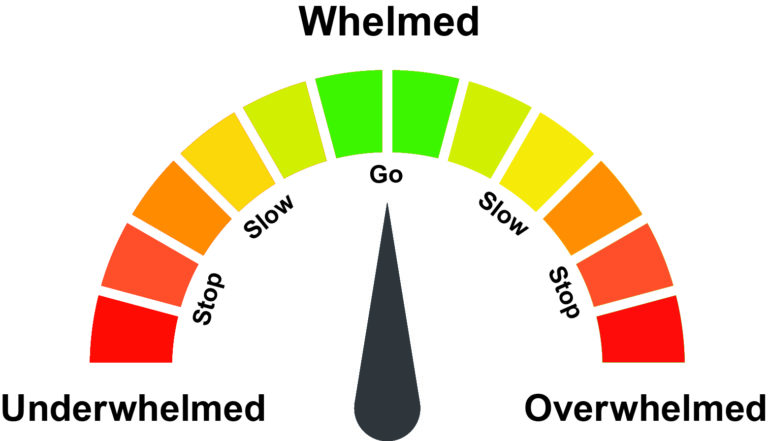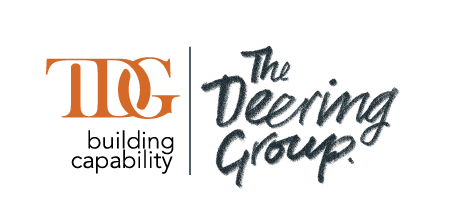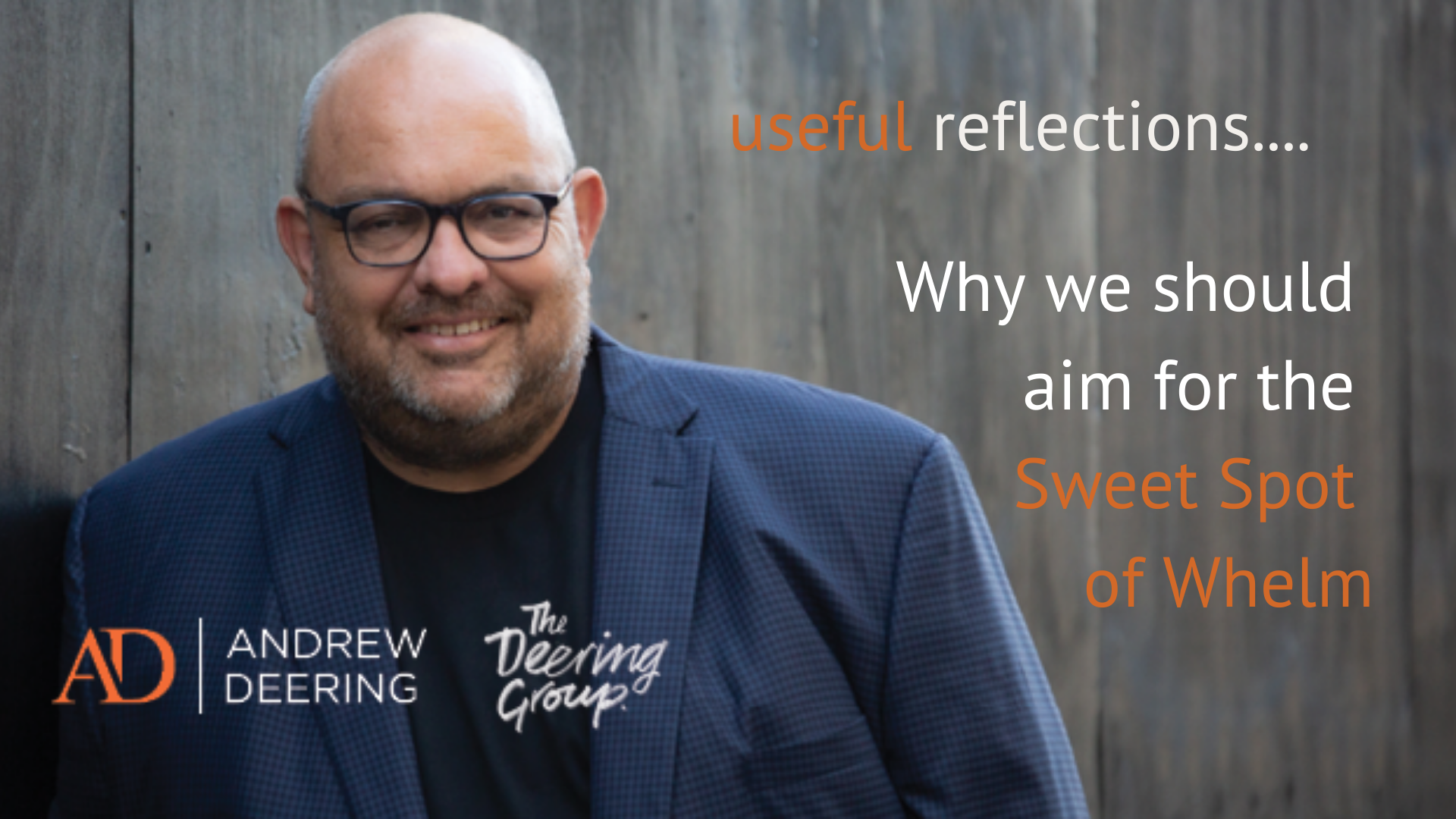I want to be whelmed. Not over, not under – just whelmed.
I remember as a child hearing the story of Goldilocks and the Three Bears. One day, Goldilocks stumbled across the three bears’ house in the forest. She entered and wandered through their home, trying the food, the chairs, the beds. Some things were too big or too hot for her – they were overwhelming. Other things were too soft or too cold – they were underwhelming. But she always seemed to find something that was just right. To me, that’s where Goldilocks found that sweet spot. She was whelmed.
In our day-to-day lives, how often do we find ourselves underwhelmed or overwhelmed? And how often are we whelmed?
I think of “whelmed” as being right between underwhelmed and overwhelmed. It’s useful, then, to look at those two words more closely so we can gain a full understanding of what it means to be whelmed.

Overwhelm is when we are overpowered or overcome in a significant, sometimes catastrophic or devastating way. It can have an enormous, negative emotional impact. For example, right now, post-federal election time in Australia, we’re seeing a lot of politicians who are overwhelmed by the questions reporters are asking them. They are often unable to answer these questions in an effective, satisfactory way.
Underwhelm is at the other end of the spectrum. When something is underwhelming, it has failed to spark our interest. It makes no impression, it doesn’t motivate us, and we have little use for it. To call on the example of the federal election, much of the general population is significantly underwhelmed by our politicians. Many of us are disappointed and dissatisfied with their answers to the media.
So, while overwhelm is destructive, damaging and prohibits our ability to function effectively, underwhelm can be so disappointing and demotivating that we fail to make progress with our work or don’t even begin.
Whelm, on the other hand, is when we are engaged, productive, useful and offering our greatest value. How, then, do we find this middle ground of whelm?
When we look at the different types of activities we do each day, into which category do they fall? Do they underwhelm, whelm or overwhelm us? How much time do we spend in each category and is this the most useful way we could be spending our time?
I know for me, I would like to find that Goldilocks moment each day; that whelming moment when things are just right. It’s that happy middle space that makes us highly effective, highly useful and able to do our best work.
The reality is, we will often find ourselves underwhelmed or overwhelmed. This creates stress, no matter the context. So, it’s essential we learn how to manage stress. Do we use stress to improve our performance? Or do we become so overwhelmed by it that we are unable to function effectively?
Stress, in a whelmed sense, can be fabulous. It’s how we learn to change and adapt. Stress teaches us how to deal with the complexity of a challenge, so we can rise to the occasion and move forward. As composer Leonard Bernstein says, “To achieve great things, two things are needed: a plan and not quite enough time.”
But if we struggle with stress, if we are overwhelmed by it, we can burn out. We become emotionally, mentally and physically exhausted. It is impossible to be at our best in this state.
Having no stress is also problematic. If we are always underwhelmed by the things we see and do, we find ourselves in a rut. We become ineffective in our work and fail to make progress. As novelist Ellen Glasgow says, “The only difference between a rut and a grave are the dimensions.”
So, how do we get ourselves to a place of whelm? I find the following key points useful:
- Watch out for signs of overwhelm. These may include tiredness, memory problems and headaches. Identify your triggers for these physical, mental and behavioural changes so you can avoid or manage them. A great way to keep overwhelm at bay is to exercise daily. Exercise reduces stress hormones and floods the body with endorphins, improving mood and energy. It’s a great distraction.
- Take the time to relax. Do things you enjoy. You can’t work all the time – make sure your body and mind get the chance to rest and just be. Mindfulness is an excellent way to relax and manage feelings of stress. Meditation and breathing exercises are two exercises in mindfulness that can help us find our place of whelm. Being mindful also involves realistically managing your time. One of the biggest challenges I face is that I commit to too much. Although it’s important to push yourself at times so you don’t enter a state of underwhelm, it is destructive to push to the point of overwhelm. Be mindful of how much you can do and what you can do.
- Reach out. If things aren’t going well, talk to someone. Seek help. Friends, family and professionals are all there for you; you don’t have to deal with overwhelm – or underwhelm – alone.
All of us have an important role to play, at work and at home. Being underwhelmed or overwhelmed isn’t useful to us. Our job is to try to find that place of whelm, where we can do our best work in a way we enjoy, and that is most useful to ourselves and others.
Be kind, be well, be true, be you.


